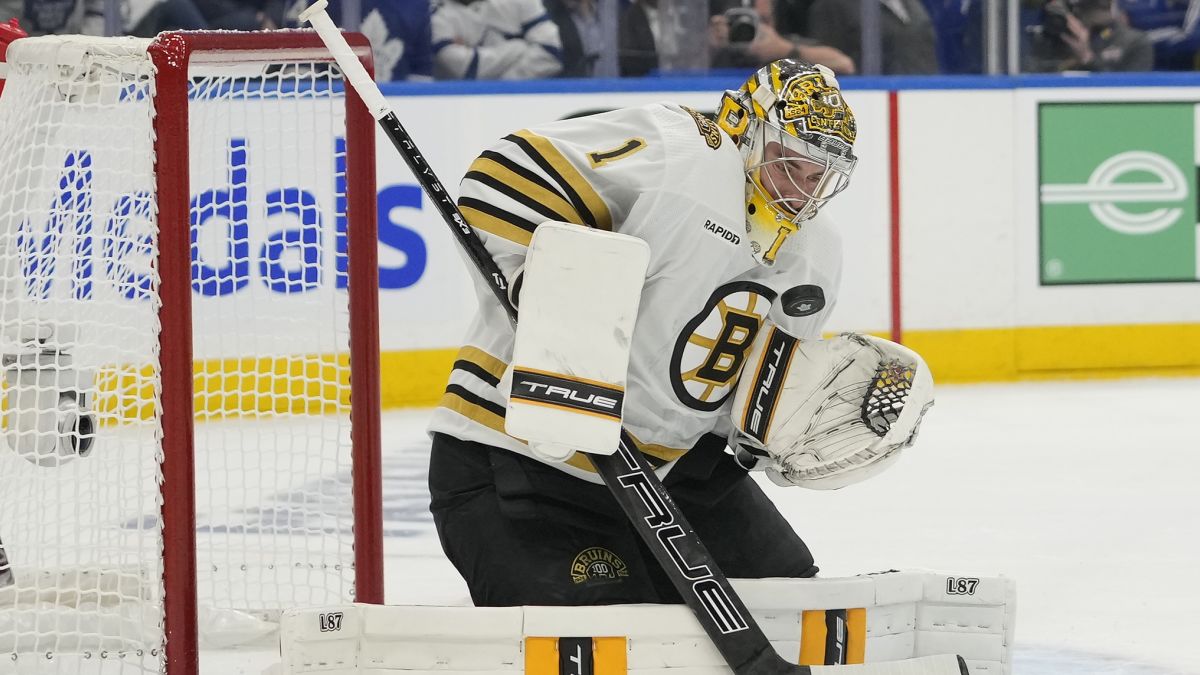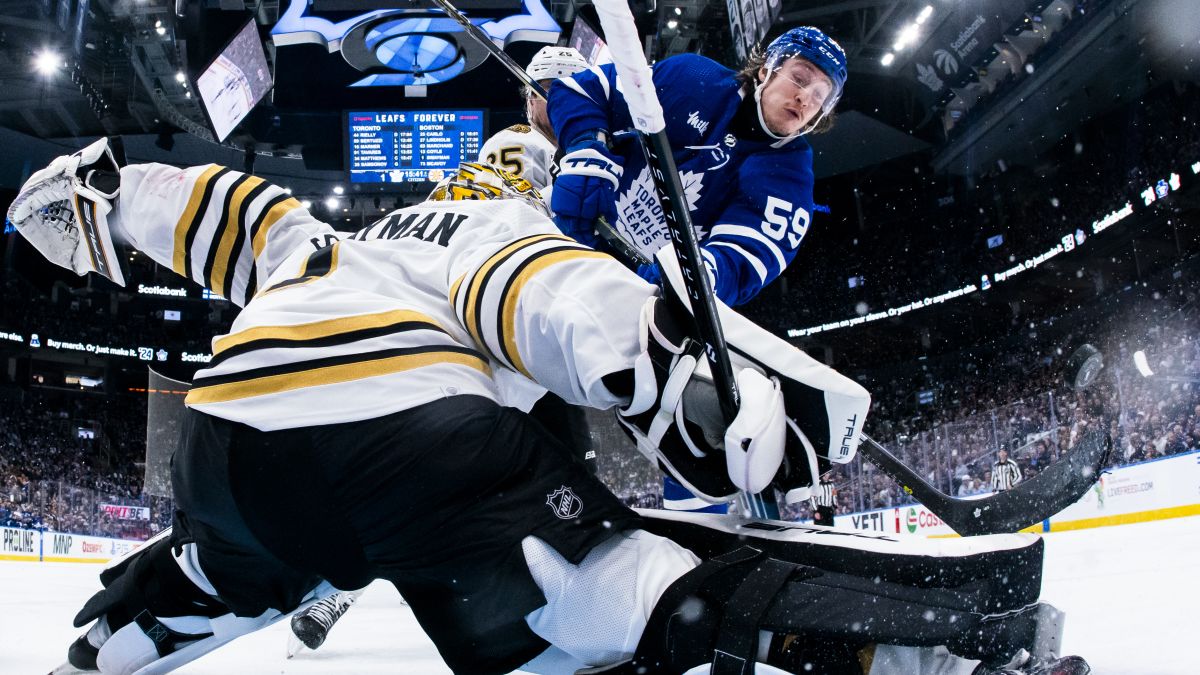The reality is that nobody knows what lies ahead from an economical landscape in the world of professional sports. And anybody that professes to know exactly what will happen is bald-faced lying to you.
That’s the reason there have been only a handful of one-way NHL contracts for over $1 million per season since Jaroslav Halak signed a one-year extension with the Bruins all the way back on May 1.
Essentially, Halak and the recent signing of Ryan Reaves to an extension with the Vegas Golden Knights are the only NHL contracts of consequence that have been completed in the entire league over the last two months. Caution is in the air with NHL general managers crunching the numbers on flat salary caps for a couple of seasons moving forward, if not even worse scenarios than that based on the speculation that arenas could be empty going into the 2020-21 regular season as well.
Get the latest news and analysis on all of your teams from NBC Sports Boston by downloading the My Teams App
It's this caution and uneasiness that serves as the backdrop for looming Bruins free agent defenseman Torey Krug, who is destined for unrestricted free agency once the 2020 Stanley Cup Playoffs come to an eventual, elongated conclusion.
There was a time when Krug and the Bruins might have been able to make a deal based on the salary cap space that Boston cleared by ridding themselves of the David Backes contract, and based on the salary cap going up from the $81.5 million salary cap ceiling this past season.
Krug has consistently maintained he’d like to remain in Boston with all things being equal, though there had been little talk of taking “a hometown discount” after the 29-year-old defenseman said that early on this season.
Boston Bruins
"There hasn't been any discussion," said Krug back in April during a virtual town hall with season-ticket holders. "I'm prepared for it just because of the unknown and that nobody knows what the financial implications are going to be for this league, and for each individual team for years to come. That's still being sorted out. I didn't really anticipate anything like that. As I've said all along, I want to be part of this group, part of this locker room and part of this city.
"[Boston] has become home for us and we love it. You heard our Fenway bark earlier. We named our dog ‘Fenway.' How much more Boston can it get? I never thought about it during the season while we were playing, but now that you have a second to think about it, the mind wanders a little bit. We always assumed that we'd have some kind of [contract] answer by July 1, but who knows if we'll have that with regard to the season and how it all plays out. I'm just trying to live in the present and enjoy what we have now, and hopefully finish out the season."
Estimates had the salary cap rising to roughly $84 million with the B’s already committed to $63 million in guaranteed contracts for next season.
But that was before the outbreak of COVID-19 put the regular season on pause in mid-March and put the notion of business as usual far back in the NHL rear-view mirror. Assuming the Bruins face a flat salary cap for next season, that leaves them with roughly $18.5 million in salary cap space for next season with 17 regulars locked up.
The Bruins also have to come up with contracts for unrestricted free agent Zdeno Chara, restricted free agent Matt Grzelcyk, restricted free agent Anders Bjork and restricted free agent Jake DeBrusk along with Krug. Let’s assume that Chara signs for something in the neighborhood of this season’s $2 million incentive-laden deal, arbitration-eligible Grzelcyk signs for roughly $2.5 million AAV and Bjork for roughly $1.5 million AAV based on this past season’s breakthrough as a regular top-9 winger in Boston.
It would also mean walking away from free agents Joakim Nordstrom and Kevan Miller at the end of this season, which seems pretty self-evident given the chance to replace Nordstrom and Miller’s inability to get back on the ice due to injury issues.
The difficulty will come down to signing both Krug and DeBrusk to important contracts with something in the neighborhood of $11-12 million remaining in cap space after the Bruins take care of their other players. Krug has been pretty mum about his status with the Bruins other than to say A) he’d like to remain in Boston with all things being equal and B) that there has been very little progress on a new contract over the past year.
It’s a tough spot for both player and the hockey club because of the financial uncertainty. It’s more likely now that Krug is going to sign for as much money as he can get now given the uncharted waters ahead. Krug would have been able to command an annual salary in the $8 million AAV range based on his offensive production over the last handful of seasons, something few of his peers can boast.
.embed-container { position: relative; padding-bottom: 56.25%; height: 0; overflow: hidden; max-width: 100%; } .embed-container iframe, .embed-container object, .embed-container embed { position: absolute; top: 0; left: 0; width: 100%; height: 100%; }Since the beginning of the 2016-17 season, only Brent Burns ($8 million per season), John Carlson ($8 million per season), Victor Hedman ($7.875 million per season), Roman Josi ($9.059 million per season) and Erik Karlsson ($11.5 million per season) have produced more points among defensemen than the 212 posted by Krug. That is heavy-duty NHL company with a capital “H” and demonstrates how in-demand Krug would be as a PP quarterback, puck-mover, point-producer and top-4 defenseman capable of playing 20-plus minutes a night in the NHL grind.
Those kinds of players don’t grow on hockey trees. Those kinds of players get paid and they get paid big money. Every player on the aforementioned list of Krug’s peers is paid a minimum of $7.875 million per season, and others like Marc-Edouard Vlasic and Jarred Spurgeon are making upwards of $7 million per season as well.
The unknown question is how much of an adjustment there will be made to all NHL contracts once each of the 31 teams scramble out from under the rubble of the COVID-19 impact.
Interestingly, Bruce Cassidy wondered aloud what he might do next season if Krug is not a part of the Bruins picture based on the economics during a discussion with The Athletic about the Black and Gold’s power play. Cassidy has been toying with the idea of five forwards on the top Bruins power play, and that should tell you that the Bruins know there’s a very real possibility they simply cannot afford Krug’s next bank-busting deal.
“Is it Grizz or Charlie? Or is it a fifth forward?” asked Cassidy. “That’s one thing I’ve been brainstorming. It’s been rattling around in my head a little bit. Not for this year. We have Torey in place. It may never be [if Krug ends up re-signing]. But it’s one of those things to put in the hopper for down the road.”
There’s also the Patriots-like salary hierarchy already in place with the Black and Gold. Do they want to pay Krug more than Patrice Bergeron, Brad Marchand or David Pastrnak and make him the highest-paid player on the roster as an undersized, elite offensive defenseman who's approaching 30 years old? Or do they expect Krug to make a little bit less than market value as all of Boston’s other players have done in recent seasons to keep the band together?
Clearly, they would miss him on a top power play unit that’s vital to the overall success of the Bruins and they would miss his fiery, passionate leadership as a key “middle guy” between the younger and older generations inside the Bruins dressing room.
But unless something unforeseen happens — like a decision to trade Jake DeBrusk rather than pay him or some miracle trade where they can cut more salary after already spending a first round pick to escape the David Backes albatross — it feels like it’s an increasing longshot that Krug is going to be back with Boston after this final summer hurrah.


